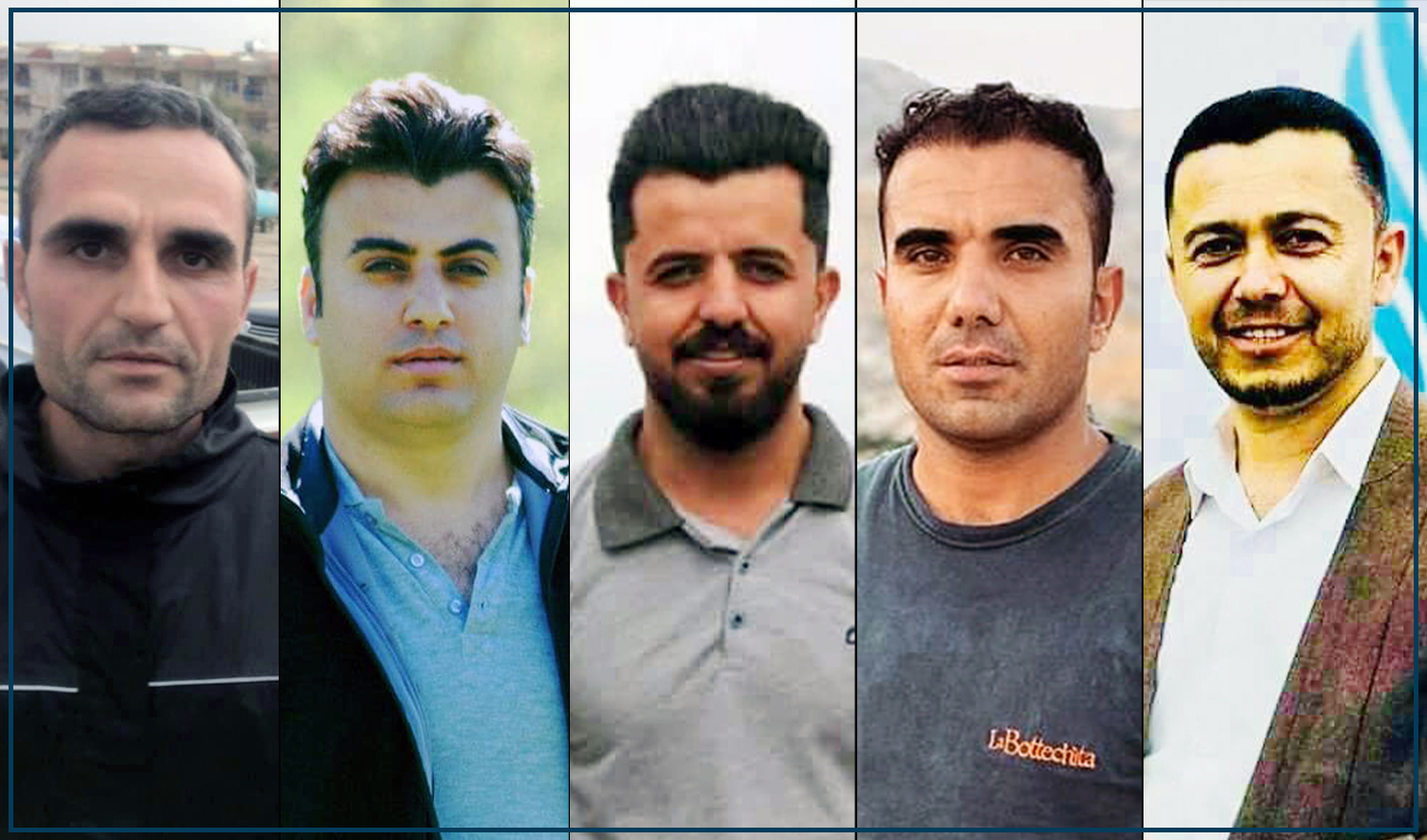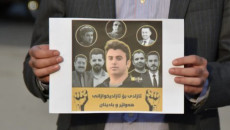The president of Iraqi Kurdistan Region IKRP per his power has reduced the conviction sentence for 5 of Badinan detainees from 6 years to to two years and half, expected to be released after six months, attorney said.
Erbil court in last February sentenced five journalists and civil activists from Erbil and Duhok for charges of "spying and attempts of coup d'eta and disorder.” The five detainees were detained since October 2020 along with tens of journalists and activists.
In June 2021, the penal panel two of Iraqi Kurdistan Appellate Court in Erbil has issued its final verdict unanimously, confirming the court ruling of six-years-in-prison for freelance journalists Sherwan Sherwani, Guhdar Mohammed Zebari, and civil society activists Ayaz Karam, Hariwan Essa & Shivan Sa'id.
The court verdict sparked wide protests as Iraqi and international media outlets and organizations, human rights advocates & MPs expressed their grave concern that that press freedom is increasingly under threat in the Kurdistan Region of Iraq KRI.
Bashadar Hassan, one of the volunteer attorneys to defend Badinan (Duhok) detainees, told KirkukNow that Iraqi Kurdistan region president Nechrivan Barzani has ordered in a presidential decree to reduce the imprisonment for the five detainees by 60%, from 72 months into 29 months.
Taking into consideration the three months off per year for conditional release, they will be released after six months, Hassan added.
Badinan detainees, few of them tried and freed up today, are victims of a wave of arrests carried out by the Asayish (Kurdish security forces) of the Kurdistan Regional Government KRG since June 2020 in response to a series of major protests against delay in salaries of state employees, KRG handling of the economic crisis resulting from disputes with Baghdad over oil production, export and corruption, and reached its peak under the Covid-19 pandemic.
Video: Bashadar Hassan, an attorney, explains the presidential decree to reduce imprisonment for five of Badinan detainees. KirkukNow
Court verdict was based on interrogation by Kurdistan region Asayish, security, who was in charge of questioning the detainees.
The conviction was based on bill number 21 approved by parliament of Kurdistan, Iraq, in 2003 which revoked item 156 of Iraq penal code stating that "any one purposefully in any means involved in an action that harms security, stability and sovereignty Iraqi Kurdistan region's institutions and causes damage will face life imprisonment or short-term imprisonment."
Journalists, civil society activists and lawmakers condemned the conviction as a restraint of freedom of press and expression.
Independent commission for human rights in Kurdistan region recorded arrest of 300 people from August to October 2020 for "organization of protests and disorder mainly in Duhok northern province. More than 50 are still in prison.
The KRG has sent over 50 activists and journalists to court in 2020 and 2021 and some of the cases are still pending at court awaiting trial.






